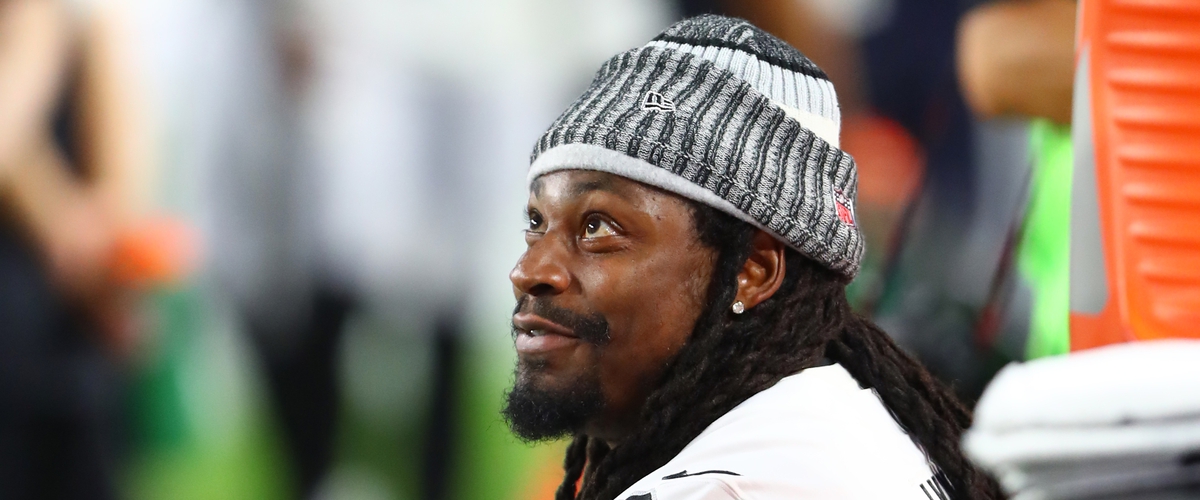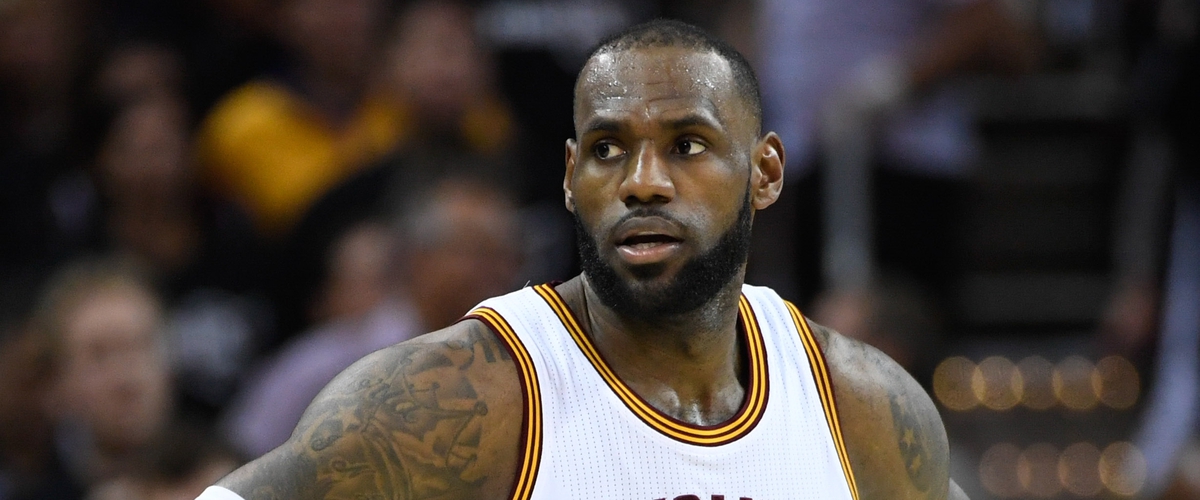Why We Shouldn't "Stick to Sports"

Given the events of the past year or so and their effect on the growing fear, turmoil, and divisive prejudice permeating our country, I keep thinking about how serendipitous it is that I, a black man, am angling to make a career as a sports journalist at this very moment.
Last week, in fact, I attended the 2017 National Association of Black Journalists Convention in New Orleans, hoping to make the kinds of connections that could help me make my burgeoning dreams a reality. And to be sure, I met multitudes of incredible people, from well-known figures in the sports media industry to young black men and women like myself just trying to make it in this profession. Truthfully, I've never experienced anything quite like it: having so many talented, beautiful people, both established and novice alike, gathered together in one place trying to lift each other was truly inspiring.
But what I ultimately took from attending the conference was far more significant than just a few contacts or job offers. And it’s some of that perspective, particularly in light of the Charlottesville, Virginia protests and the National Anthem protests occurring in the NFL, that I want to share with you today.
By the time the NABJ conference was wrapping up last Saturday and our closing Sports Task Force meeting was underway, most of us already knew what had happened the night before and what was happening that day in Charlottesville, Virginia. Naturally, in a room filled with people of color, it didn’t take long for the topic to emerge.
And when it did, I soaked up the moment, trying to capture the feelings I had for posterity.
Here I was, sitting in a meeting comprised almost completely of black men and women discussing sports journalism-related topics—including how to increase diversity in Major League Baseball media participation and who was looking for new talent in the sports industry.
Then suddenly, we were talking about the continued reality that people in this country still believe they are superior to me and people like me because they come from ancestors of European descent and we don’t. We were talking about how multiple people were harmed—one even killed—because a coward ran his car into a group of people protesting their misguided, reprehensible cry against the dying of “white history”. And we were talking about how our president doesn’t understand or care that hatred of white supremacist groups for us and other minorities comes from one source—theirs—and not many.
For a moment, all of us aspiring and established sports journalists left the sports behind. We had to. More than one person in the room emotionally spoke up about their feelings on the subject. Tears were shed. Feelings of incredulity and frustration filled the room. I looked at the screens of people next to me as they scrolled through Twitter catching up on the news, and the anger and helpless feelings stole over me too. The community I felt then with all those people was like being in church, though we were all scared and angry rather than rejoicing.
In that moment, we all felt once more the terrible truth that we live with on a daily basis: to some people, we’ll always just be...you know the word: the one synonymous with labeling black people members of an inferior “race”. There will always be people that judge us before they see or know us, no matter how educated we are, what we accomplish, or how hard we try to be respectful of everyone else. And there will always be people that want to push us down so that they can prop themselves up. For those of you that don’t live with that reality, it sears like a knife in the heart.
Sadly, our reality, whether we’re talking about athletes, journalists, or just everyday people of color, is that we don’t get to escape from what we are. LeBron James doesn’t get to escape from his blackness despite his money and fame; anonymous cowards can still find it in their hearts to paint racial slurs on his property. Though people like to throw in his face that he was raised by white parents, Colin Kaepernick is still black enough to endure racist taunts. And our own former president, Barack Obama, and his family were repeatedly called apes and subjected to imagery of them being lynched by white mobs.

The world does not let us forget that we’re black, brown, or just plain different, no matter where we are in life or what we do. And even those who attempt to absolve themselves from vitriol by claiming that they “don’t see color”—for the record, no one asked you not to. In fact, doing so means that you’re not seeing an essential component of what we are and what we’ve been through—are often content to stand aside as we continue to struggle. And even though slavery and Jim Crow no longer exist (in a specific sense), people of color remain more than 250 years behind in their quest to truly be treated equitably in the United States of America.
As such, why should we just forget that such divides exist when we go to work every day as if they suddenly disappear? And why should we let others continue not to acknowledge them?
Why is it simultaneously incumbent upon people of color to lead the efforts to “fix” the racial divide while also not disturbing those uncomfortable with these conversations? Have people forgotten who invented the concept of “race” and white supremacy in the first place? I’ll give you a hint: it wasn’t black people.
In short, people of color never get to fully separate who we are from what we do. We are black before, and after, we are anything else, which wouldn’t be a problem if this country hadn’t been whetting an ax against the black community for multiple centuries. As such, one might even say that it is our duty to speak out against injustice, no matter what our platform is or why people listen to us.
So pardon us if we don’t care how uncomfortable conversations about race make those who find themselves unaffected. We don’t have the luxury of being able to comfortably compartmentalize our lives all the time, with sports and entertainment on one side and politics/social issues on the other. We don’t owe anyone else that luxury, either.
Perhaps the fact that people want this peculiar arrangement—see what I did there?—to exist in regard to keeping race away from sports and entertainment isn’t surprising.
After all, it’s in our country’s nature to pretend that some human beings aren’t actually real people. Of course fans wouldn’t acknowledge that racial prejudice affects substantial percentages of the athletes they watch on TV. They’re essentially little more than glorified video game characters at that point.
And, as the Confederate monument protests suggest, some in this country prefer to account inanimate symbols more dearly than other people living and suffering here. Why listen to the message—one that drove Civil Rights protests barely 50 years ago—when you can hide behind the deification of stone and the revision of history? Unfortunately, that disjointed thinking even clouds our perception of the American flag, which somehow has become more important and symbolic of America to those wrathful at silent anthem protests than the American people and military themselves.
This country has a long history of refusing to acknowledge the failures of its past—people literally just marched in remembrance of a defunct white, slave-owning utopia.
We people of color cannot allow that to stand any longer, regardless of what our profession is or how others may feel about it.
If that means that Marshawn Lynch, Michael Bennett, and others in professional sports have to keep sitting for the anthem for these topics to be discussed, so be it.
If that means LeBron James must keep using his immense profile to bring attention to social issues, so be it.
And if that means people like me, and other sports journalists far more prominent than I am, have to keep writing and talking about these topics in the media? So. Be. It.
Take this to the bank: if I’m ever blessed enough to have my own show in sports media, I will never just stick to sports, especially if I can make a relevant connection between athletics and real-life events. Don’t even bother asking. And if it bothers you, feel free to unfollow me. You won’t be missed.